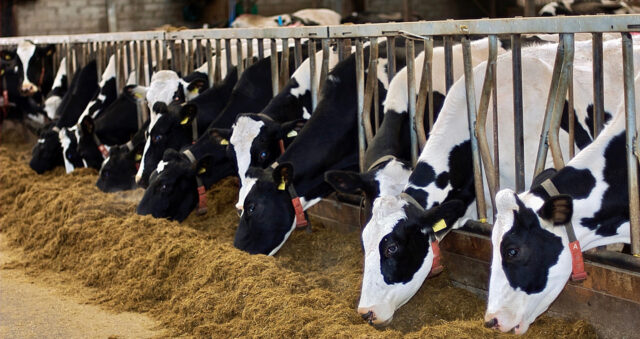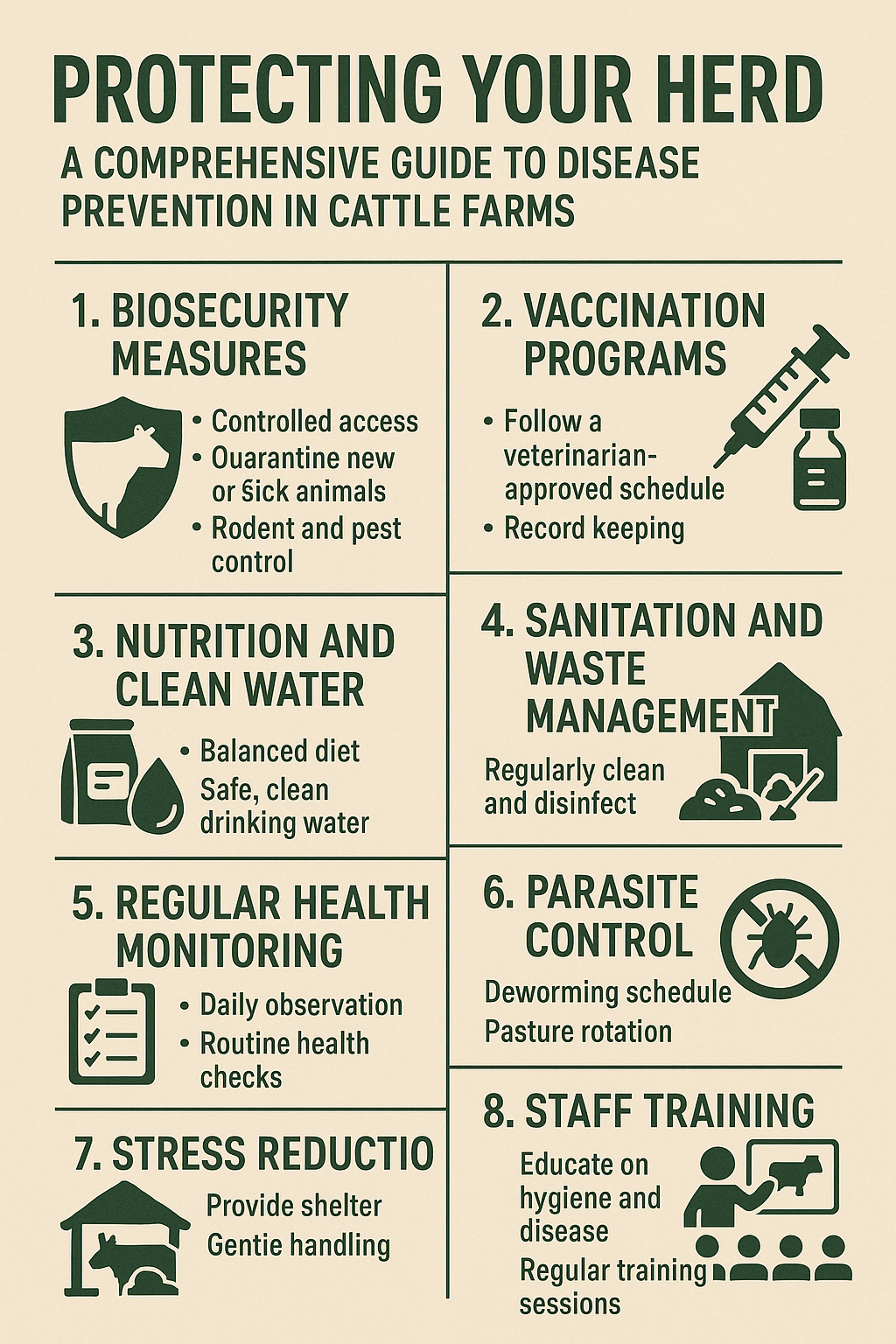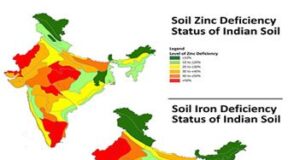
Minerals are important for all physiological processes in animals including production and reproduction. Trace minerals viz. Zinc (Zn), Cobalt (Co), Copper (Cu), Iodine (I), Iron (Fe), Manganese (Mn), Chromium (Cr), and Selenium (Se) are considered essential in dairy animals because of their vital role in reproduction, immunity, and growth. Research has suggested that slight deficiencies of certain trace minerals may severely affect a cow’s health and productivity. Subclinical deficiencies are more common than clinical deficiencies that results in decreased immune response, reduce growth and reproductive performance. Clinical deficiencies are less common and can be seen in animals depleted of trace minerals demonstrating pathological or visual signs of a deficiency.
Trace minerals in Dairy Animals:
Adequate amount of bioavailable minerals need to be supplemented to support the haemostatic state of the animal during all phases of life. During periods of dietary mineral insufficiencies, essential minerals drained out from body tissues to support milk production, which ultimately affects the quality and quantity of milk as well as health of the animals. Reduction in pregnancy rates can occur as a subclinical effect of marginal trace mineral status. Deficiencies in Cu, Se, Mn, and Zn have been linked to abnormal estrous cycles, impaired ovulation and decreased conception rates.
In development of replacement heifers, trace minerals Cu, Se, Mn, Cr and Zn play roles in bodily functions that support reproduction. Supplementations of trace minerals improve conception rate & productivity in dairy cows in different situations. Few important functions of the trace minerals are given below:
Zinc (Zn): may be the most widely deficient trace mineral. Zn plays an important role in metabolism as a component of more than 300 enzymes and hormones. Zinc may impact immune function because of its essential role in cell replication and proliferation. Zinc is also required for the synthesis of metallothionein, a metal binding protein that may scavenge hydroxide radicals. In dairy cows, zinc deficiency is visible through bad hoof horn quality, reduced fertility and poor udder health. Zinc-deficient calves may have swollen feet, scally skin with open lesions, wounds that take longer to heal, loss of hair, excessive salivation, reduced appetite, reduced feed efficiency and growth rates, and impaired immune systems.
Manganese (Mn): It works as an enzyme activator and is crucial for energy, protein and fat metabolism. Importance of Mn in steroid hormone synthesis may be its most important role in reproduction. It is also hypothesized that Mn may play an important role in immune function because of its role in removing superoxide radicals produced by active immune cells. Deficiencies in manganese are reflected in reduced growth, skeletal deformities, poor fertility and birth defects in new born calves.
Copper (Cu): Cu plays important roles in the formation of haemoglobin, bone, melanin and keratin. Cu is also an essential component of enzymes that have activities in cellular respiration, cross-linking of connective tissue, central nervous system formation, reproduction and immunity. In the reproductive cycle, it plays an important role in the function of many enzymes. A clinical deficiency in copper can lead to decreased conception rates, infertility, anoestrus, and fetal resorption. Cu deficiency can occur in diets normally considered adequate because of high levels of antagonists such as sulfur, iron, and molybdenum which reduce bioavailability.
Chromium (Cr): Cr has been shown to be effective in increasing glucose use and growth performance. Cr increases effectiveness of insulin action in lactating ruminants which has an overall increase in metabolic efficiency, leading to improved production. Cr supplementation also improves health and immune function in stressed calves & cows.
Selenium (Se): Both selenium and vitamin E act as metabolic anti-oxidants. Selenium is a major constituent of glutathione peroxidase, which aids in the reduction of hydrogen peroxide and other peroxide radicals. Se acts directly on granulosa cells of ovarian follicle to enhance their proliferation and increase estradiol synthesis. Se deficiency resulted in reduced follicle cell proliferation, altered blood vessel and stromal tissue development of the fetal ovaries. Supplementation of Se during the third trimester may be needed to maintain maternal Se status and antioxidant activity.
Factors affecting trace mineral status:
The absorption of essential trace minerals from feed or feed supplements is often not sufficient when the demand for these minerals is high. A variety of factors negatively impact the absorption of orally consumed trace minerals. These can include poor or inadequate trace mineral supplementation strategies, large variations in oral mineral intake and the presence of antagonists in feed & forages. This reduced absorption or bio-availability makes it difficult to optimize trace mineral status and functions at critical production periods using only the oral intake route.
It is reported that dairy cows and calves under stress reduced their trace mineral retention ability. Moreover, either the act of parturition or the beginning of lactation has been found to be related with a decrease in plasma minerals levels. Hence, during the transition period cows may have increased trace minerals needs which is due to improper absorption of dietary mineral supplements owing to interactions with other nutrients at the ruminal level or due to modifications in the rumen. Besides, antagonists located in drinking water may also have a negative effect on the efficiency of trace minerals absorption from the digestive tract.
Immunity and Trace Minerals
The role of Zn, Fe, Cu, and Se are critical in disease resistance of dairy animals. It is reported that complex antioxidant systems keep free radical concentrations low through superoxide mutases (need Mn, Zn, and Cu), catalase (Fe containing enzyme), and glutathione peroxidase (Se containing enzyme). With Zn deficiency, thymus weight is reduced with a reduced number of lymphocytes. The thymus is important in T cell formation and immune capacity. Young animals may be more affected because they are not as immune-competent as mature animals. Zn supplemented animals demonstrated improved weight gain and reduced treatment day in stressed cattle. Fe deficiencies affect antibody formation associated with B cells. Cu affects the antibody forming cells of the immune system and susceptibility to infection. Trace minerals effects on immunity have been established, but specific levels have not been documented.
Injectable Trace minerals:
The technology, targeted application, and scientific assessment of efficacy of Injectable trace minerals has been a subject of attention in the recent years. Cu, Se, Mn, Fe and Zn are the trace minerals that can be supplemented through injection. It is basically designed for administration in conjunction with a pre-existing dietary mineral program so as to ensure a consistent rate of trace mineral supplementation on a per animal basis. Trace mineral injections can also be utilized to treat animals with a suspected mineral deficiency.
- Advantage of injectable trace minerals is the targeted delivery of a known amount of trace minerals to individual animals that removes the variability associated with voluntary intake.
- Another benefit of injectable trace minerals is their rapid availability and transport in the blood. The initial spike caused by a trace mineral injection in plasma and serum levels are only elevated for a short period of time (24 hours), and then decrease slowly over the following days (14 – 15 d) as they are stored in the body.
- Delivery of trace minerals via an injection ensures that all animals are receiving trace minerals at times when their requirements may be higher such as at breeding or pre-calving in cows. This could potentially improve the performance of deficient and marginally deficient animals.
- Calf response to trace mineral supplementation has been even more variable than in cows, possibly because of the transfer of trace minerals from their dam during gestation and transfer of trace minerals through the milk. Therefore, the use of trace mineral injection to the calf to ensure each calf is receiving trace minerals may be more beneficial to calves.
- Trace mineral injections can be used in addition to free choice supplementation as they are not stored in the body for extended periods of time as some may be used immediately or excreted from the body a few days after being injected.
- Strategic trace mineral injection in the pre-calving period helps to raise not only the trace minerals but also the essential enzyme levels in cows rapidly and effectively which could benefit cows during the transition period.
- Many studies have investigated the use of trace mineral injections in dairy cattle, and the transfer and storage of Cu, Mn, Fe, Cr and Zn from the injection throughout the body; have shown beneficial effects on the growth and immunity of dairy cattle:
- Positive impact on udder health, reduction in the incidence of mastitis, stillbirth parturition, and endometritis (Machado V. S. et. al., Cornell University, USA)
- Favourable body condition scorecard between calving & breeding and greater conception rate to fixed time AI (L R Mundell et.al., Kansas University, USA)
- More weight gain in new born calves as well as lower morbidity (J T Richeson et. al., Deptt. Animal Science,, University of Arkansas, USA)
- Improved semen characteristics for bulls receiving injectable trace mineral (Dr. Shane Gadberry, University of Arkansas, USA)
Conclusion:
Trace mineral supplementation in the diet of dairy cows, replacement heifers & calves is essential to maintain the health and the economic competitiveness of dairy farmers. Many dynamic factors influence both nutrient requirements and nutrient availability from feeds. While daily oral trace minerals are essential for maintenance but at critical periods like pre-calving, calving, and early-lactation daily oral trace mineral intake can become variable or fall in response to stress. During these periods there is a marked increase in trace mineral demand. Clinical or subclinical deficiency can develop in cattle at these high-demand periods, even a well-formulated diet may not compensate. Strategic injectable trace mineral supplementation bypasses the harsh rumen environment and antagonists, and rapidly raises circulating mineral levels in cattle within 8-10 hours. Injectable formulation of most essential trace minerals comprised of Zn, Mn, Cu, Se, etc. may be ideal solution for Cows during the period of high productivity & developmental stages of young ones.
Author:

Dr Dibyajyoti Kalita,
Head-Technical & Regulatory, Zenex Animal Health

















